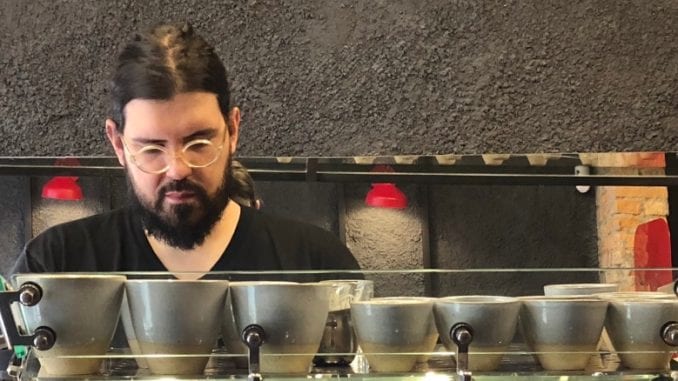
Computer engineer Samuel Teixeira recently joined the group of young entrepreneurs who are pushing up the specialty-coffee scene in São Paulo, Brazil.
BY PAULO PEDROSO
SPECIAL TO BARISTA MAGAZINE ONLINE
Photos courtesy of Samuel Teixeira
After buying a second-hand Kees Van der Westen espresso machine from a seller located 1,800 miles from São Paulo, Brazil, Samuel Teixeira decided to pick it up personally by car. To accompany him on the trip, he invited a friend, the barista and coffee consultant Maria Antonia Mion. Together, they crossed Brazil through the states of São Paulo, Minas Gerais, and Bahia, visiting farms and trying many different coffees. At the end of the adventure, he had driven more than 6,000 miles in one month and had come back with the machine, a lot of stories, and a car crammed with coffee bags. Now he runs Bogo Café, his coffee shop in the heart of São Paulo, where we sat down and talked over a fine Brazilian coffee that he and Maria acquired during their trip.
Paulo Pedroso: Tell me about your conversion to coffee entrepreneur.
Samuel Teixeira: Well, I’d say that this feeling came in waves. Just over 10 years ago, when I graduated in computer engineering in Curitiba, in the south of Brazil, I started working on a software program that I had created with a friend aimed at managing bars. One of the first potential clients I visited was Lucca Cafés Especiais. There, I drank a coffee that impacted me. I was impressed by its superiority over that which we drink daily. Soon, I started frequenting Lucca to buy their coffee and started talking a lot with the owner, Georgia Franco de Souza, who in my mind is one of those responsible for the improvement of specialty coffee in Brazil. It was the first spark. By the way, I could not sell the software. Years later, already living in São Paulo, I worked as a barista for three months at a coffee truck named Fora da Lei, a very well-known place in town. At that time, I think I was already converted.
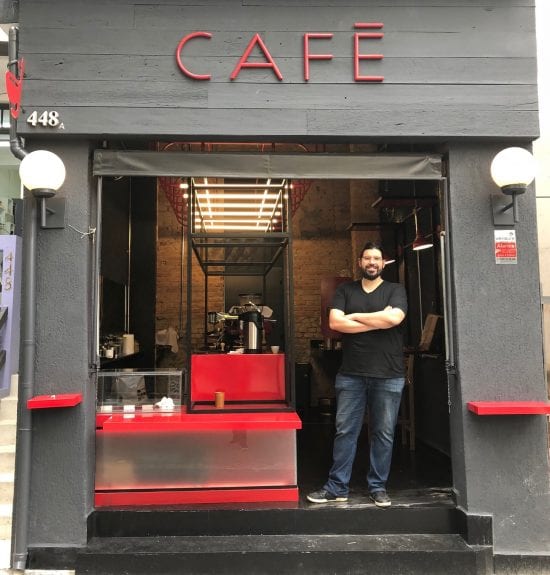
PP: I noticed that you developed a refined taste and great sensitivity to coffee. How did you develop your palate and how do you continue to practice?
ST: Yes, I did several courses, not only related to coffee. Although I am constantly tasting as many coffees as I can, whether in cupping sessions or not, I am also always trying to smell things. Not just beverage and food—everything. And the most important thing is that I like doing this with at least one person with me to talk with and exchange information. It helps me to solidify the knowledge.
PP: Why did you choose to start your business in a somewhat trendy location, where the specialty-coffee scene is already developed?
ST: I believe that anyone who drinks coffee is a potential customer of a high-quality beverage. I am not afraid to develop a new space, no matter where it is, and offer coffees with new approaches. I wanted a region where I knew the movement of people well, and I found this place very close to my residence.
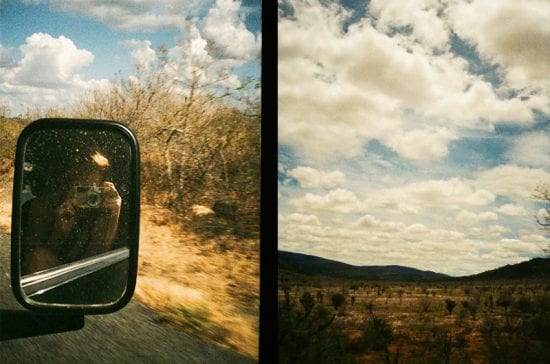
PP: Do you have a clear idea of what kinds of coffees you want to offer?
ST: Yes. For espresso I’d like to use any Brazilian coffee that isn’t just a typical “chocolatey and brown” flavor, with a low acidity and a natural sweetness to make you forget the sugar pot. For the filtered, the same thing, but with boosted acidity. Finally, for coffee drinks with milk, a classic espresso profile is my preference.
PP: Do you think of roasting your own coffee someday?
ST: Despite being a natural goal for many coffee entrepreneurs today, that’s more of a long-term plan than anything. I don’t have the knowledge, the time and much less the money to develop a roasting program. However, I also didn’t want to just buy roasted beans without having any contact with the producer. In fact, encouraged by Maria during our trip, I ended up buying some green coffee sacks and taking them to roaster Fabíola Jungles, from Curitiba, for my espresso and filtered coffee. I also work with another roaster, Hugo Rocco, for coffee roasted with a focus on drinks with milk.
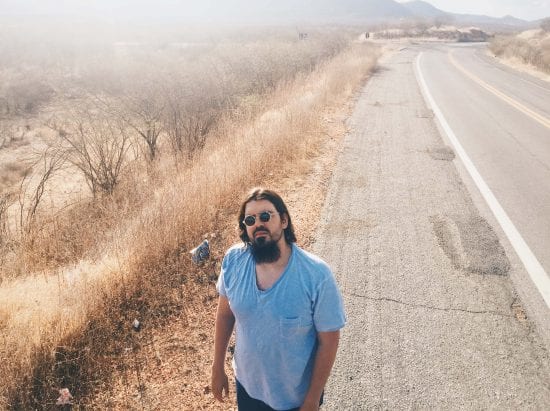
PP: Your travel mate Maria Mion seems to be not only a connoisseur of coffee but one of the great enthusiasts promoting specialty coffees in Brazil. What have you learned from her?
ST: The trip was inspiring. Even though the trip focused on coffee, and I learned a lot with her about roasting and also the function of water on brewing coffee, she taught me about so many other things. Among them are respect for different cultures, feminism, organization techniques, modern art, and analog cameras. It was really amazing.
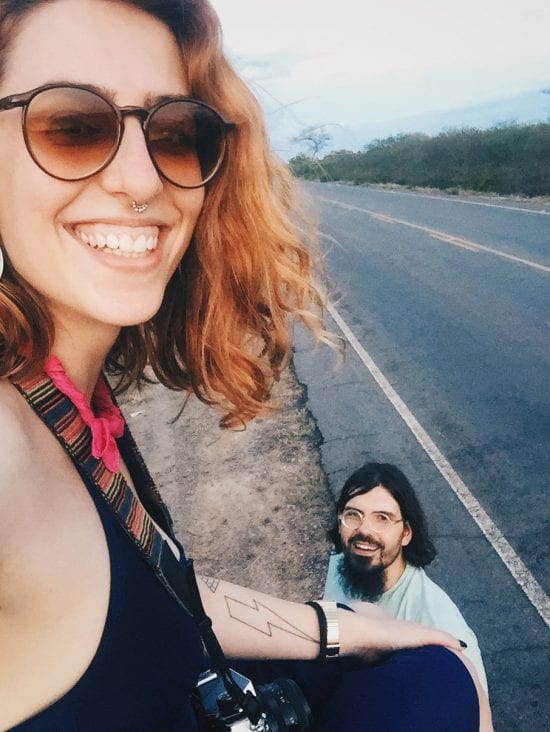
PP: Could you talk more about the trip you took to pick up your espresso machine?
ST: I met a lot of generous people. I met a lot of producers, people producing amazing coffees, and some of them, unfortunately, selling it as a commodity because they are pressed by their bank debts with very high interest rates. Truthfully, the machine that I went to pick up, at the end of the trip, had lost its initial importance. To visit places like Barinas Coffee Farm, Minas Gerais, and to know associations of producers like Apas also from Minas Gerais, and Coopiatã, from Bahia, was really amazing. Getting in touch with their realities turned into the real value of our journey.
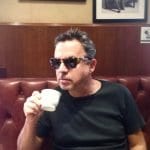 ABOUT THE AUTHOR
ABOUT THE AUTHOR
Paulo Pedroso is a Brazilian entrepreneur who is a regular contributor to several newspapers and magazines. He always keeps an eye on the increasing reach of specialty-coffee culture and the trends and life stories that emerge from this phenomenon.

